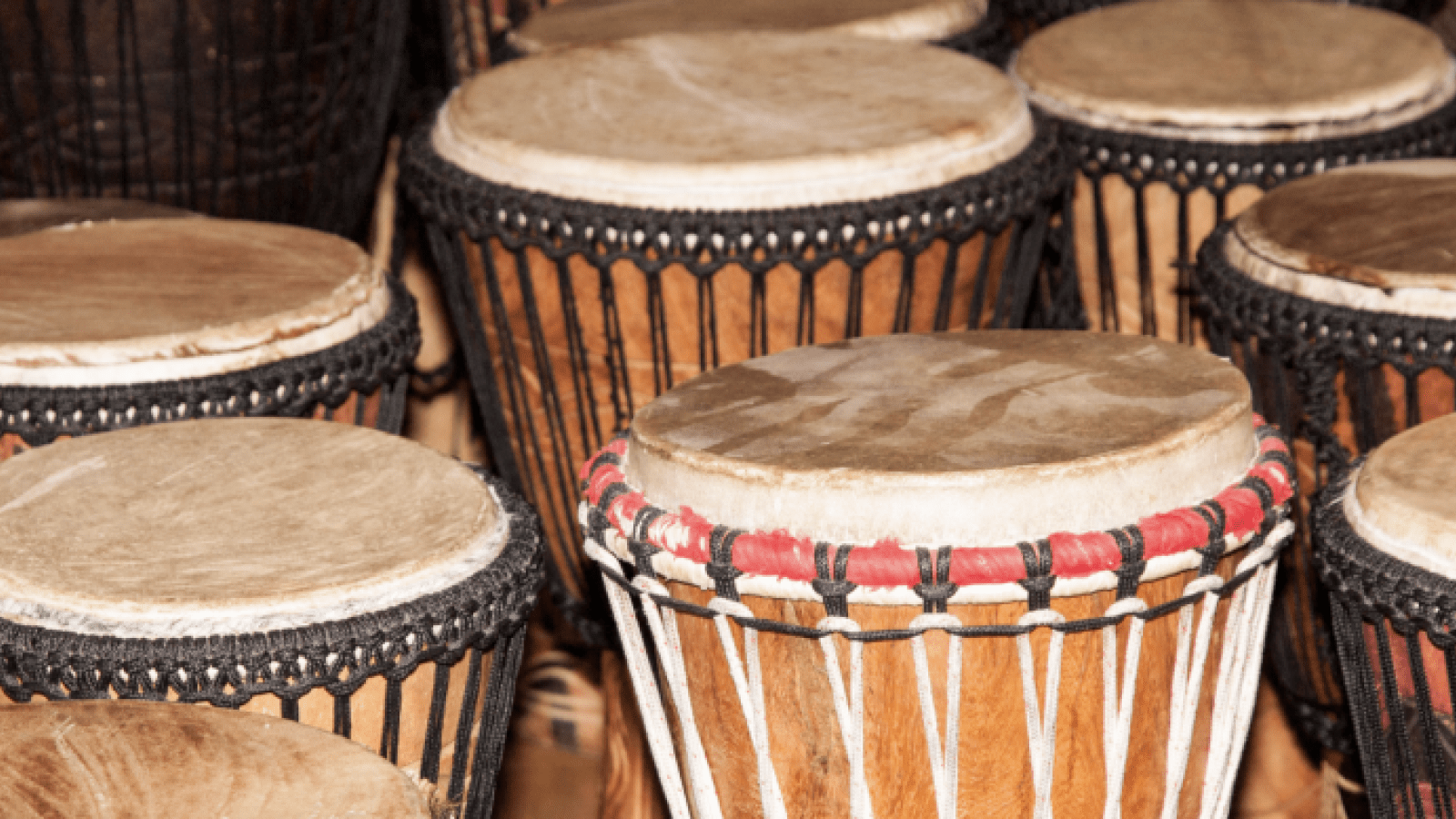About

The ANU School of Music is fortunate to have an extensive collection of Global Musical Instruments, which has grown in size and significance over three decades. While efforts are currently under way to find a suitable means to display many of these instruments, and to present them attractively on our website, the following paragraphs outline the history of the collection.
A focus on non-Western music at the School was first established in 1989, when Coralie Rockwell established a course in Asian Music. Coralie was inspired initially by the late Australian composer Peter Sculthorpe to explore Korean vocal music, before undertaking fieldwork in Indonesia and China. In honour of her efforts, the Coralie Rockwell Foundation, in conjunction with the Asian Studies Faculty, purchased the School’s first Gamelan. The School was fortunate also to receive instruments owned by Coralie, and her husband, Michael Sawer.
In 1990, Stephen Wild introduced a course in Aboriginal Music, beginning a focus on Indigenous Studies which remains today. Students in the course began lessons on the didjeridu, with the School acquiring a number of instruments through purchases and donations. Following the visit of Li Minxiong to the School in 1993, and a later visit of a Korean traditional music ensemble, further instruments were donated to the School. This enabled an enlarged offering in practical instrumental study, and the establishment at ANU of a Traditional Chinese Music Ensemble. This was augmented by the establishment of a World Music Choir at the School, led by former Head of Musicology, Ruth Lee Martin.
Non-Western performance ensemble opportunities were expanded through the purchase of West African drums under then Head of Percussion, Gary France. At this time, both African and Latin American music were frequently heard at the School. Such was the interest in World Music, each year a concert featuring diverse ensembles was staged, showcasing the skill and achievements of staff and students, to the delight of Canberra audiences.
As a sign of the School of Music’s standing in Global Music, in 1995 the World Conference of the International Council for Traditional Music (ICTM) was hosted on campus by the Musicological Society of Australia. As Stephen Wild noted in a public lecture in 2015, ‘the conference was a great success: delegates from over 40 countries converged on the School of Music, which became known throughout the world of traditional music. For many ICTM World Conferences subsequently, the 1995 conference was the benchmark’.
International esteem for the School was further boosted between 2006 and 2011, when it hosted the Secretariat of the ICTM, placing ANU forefront in the minds of scholars in the field. In 2008, a UNESCO International Symposium on Intangible Cultural Heritage was held at the School, aligning with an Asia Pacific Regional Conference on Memory of the World staged at the National Library, and associated events at the National Museum. Accordingly, at that time Canberra and the ANU School of Music was the centre of world attention for cultural programs.
Today, the Global Musical Instruments collection comprises in excess of 300 items. The School of Music envisages that over coming years Global Music will again feature as a rich area for scholarship. With the establishment of the New Perspectives in Global Music Research Hub, opportunities for staff and students to undertake research in this area presents many exciting opportunities.